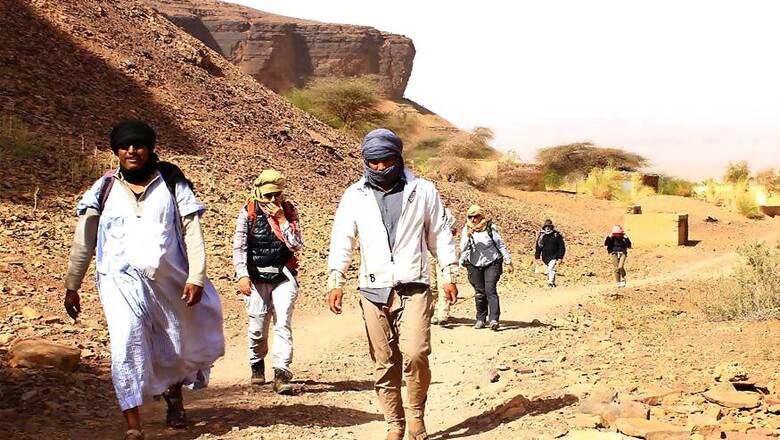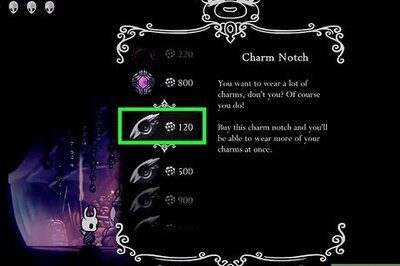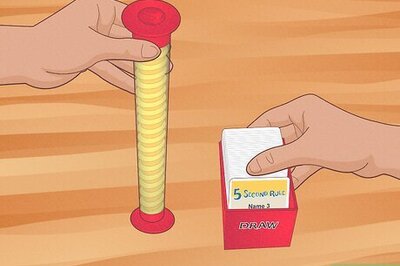
views
Sitting by a tent in the vast, sun-bleached Mauritanian desert, 71-year-old Elisabeth Godin smiles, unconcerned about her safety despite warnings from her friends and family.
For most of the last decade, the spectacular dunes, barren canyons and oases of the Adrar region have been a no-go zone for European nationals.
The danger of terrorist attacks and kidnappings is still real, reflected by Mauritania's decision to join four other countries in fighting jihadism in the Sahel.
But after France eased its assessment of the security risk for the Adrar, a tiny number of French visitors are now returning, stirring hopes for the blighted local economy.
"I missed the Sahara. The colours of the dunes, the wind on the sand, the starry skies," Godin, a retiree from La Rochelle in western France said.
"When I sleep under the stars in the middle of the camp, I feel like I'm in a cocoon," she said, on a rocky plateau surrounded by acacia trees.
Centuries ago the ancient Mauritanian towns of Chinguetti, Oualata, Tichitt and Wadan were key hubs for the camel caravan trade, which would snake across the Sahara selling gold and salt.
"Ever since I was a kid I was fascinated by the legends of the great caravans," said an awestruck visitor, Guillaume Jordan.
- Jihadist blow -
Adrar, a region 400 kilometres (250 miles) northeast of the Mauritanian capital Nouakchott, once had had a small but thriving excursion business, offering the extremes and the beauty of the desert to European travellers with a taste for adventure.
In the 2000s, the region drew up to 14,000 visitors a year, mainly from France -- which, as the former colonial power, has a deep affinity with Mauritania -- but also the Netherlands, Italy, Spain, Japan and Britain.
But the activity was dealt a crippling blow when four French tourists were shot dead in 2007, an attack claimed by an Al-Qaeda affiliate.
The following year, another local money-spinner, the celebrated Paris-Dakar off-road auto rally, was cancelled because of security concerns. The race was later relocated to South America.
The tour business staggered on before all but drying up in 2011 after further jihadist attacks.
The first seeds of hope were sown last March, when the French foreign ministry gave a cautious downgrade of the region's security risk.
It rated the risk as "orange," meaning that travel there is "not advised except for essential reasons."
Encouraged by the change, the French tour company Point-Afrique Voyages, relaunched chartered flights between Paris and Atar, the main regional city, at Christmas -- the first to fly this route since 2011.
A total of 14 flights -- supported by some 350,000 euros ($422,000) in subsidies by the Mauritanian government -- have been scheduled until March 24.
The flights are already half-filled, with more than 1,000 visitors signed up, says Point-Afrique Voyages.
"Since the flights to Atar resumed, the figures for people coming by land have also risen," said Mohammed Ba ould Ne, head of Mauritania's National Tourism Office.
Kadi Mehdi, director of Mauritanides Voyages, described 2018 as "a test season" for a revival of European visitors.
The tourism industry's big challenge is to prove the country is safe, he said.
"Dozens of police are constantly patrolling the area. We do not see them, but they are there," said Mehdi.
- 'Benefits of tourism' -
The flights and growing trickle of visitors provide hope to the many guides, camel owners and hoteliers who have been unemployed, many of whom are the economic victims of terrorism.
"We have been at a near standstill for almost a decade. Now that planes are arriving, the city (Chinguetti) is starting to live again," said hostel owner Lemine Bahan.
The trickle-down benefits of tourism should not be under-estimated, said Point-Afrique Voyages director, Maurice Freund.
Mauritania is part of the so-called G5 Sahel group, which also includes Burkina Faso, Chad, Mali and Niger. These countries are setting up a five-nation force to combat extremists.
"Mauritania has made enormous efforts to secure its territory," Freund said.
But "military force will never solve the problems alone," he said. "Tourism is a tool for peace."
















Comments
0 comment